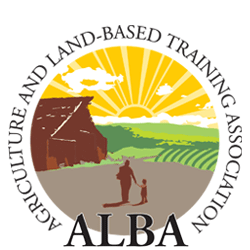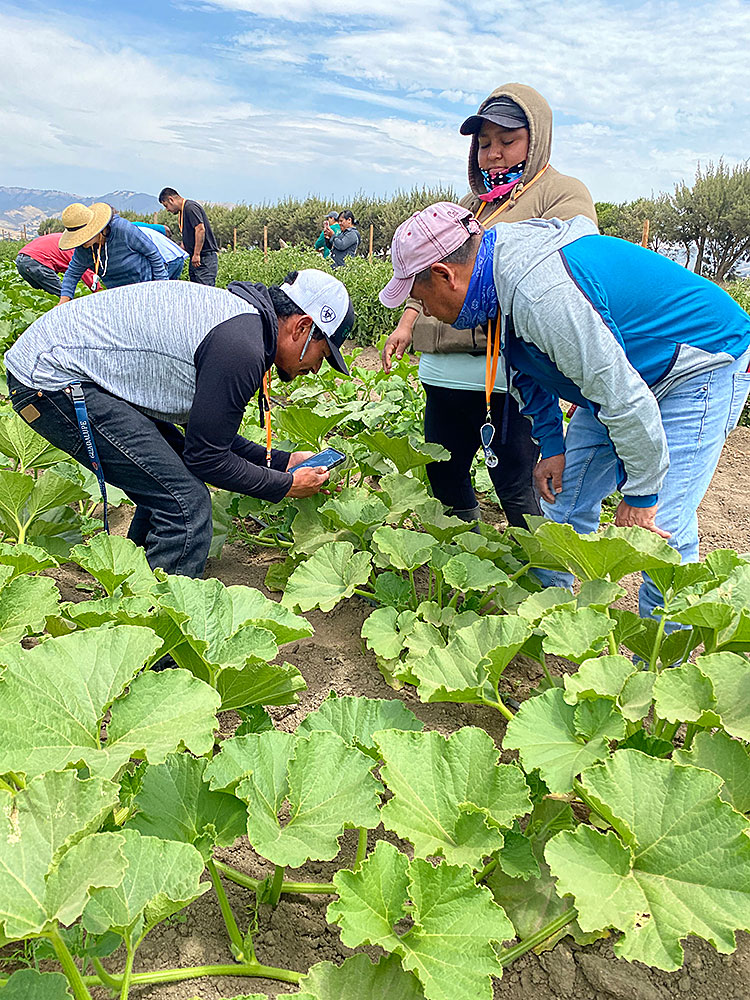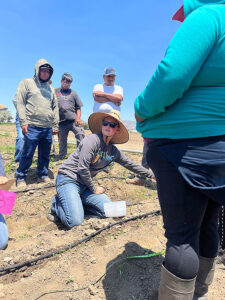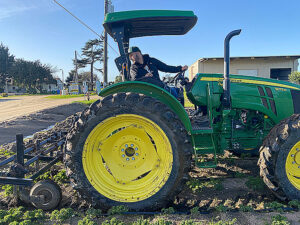Can Latino farmworkers become successful organic farmers?
For the nonprofit Agriculture and Land-Based Training Association known as ALBA, the answer is absolutely yes.
ALBA offers the Programa Educativo para Agricultores known as PEPA, a mix of classroom instruction and hands-on fieldwork, to provide aspiring farmers with the skills to launch and manage their own organic farming businesses.
Former PEPA student Gonzalo Najera now operates his own farm and trains others in sustainable pest management.
Alejandra Madrigal, another graduate, shares her passion for farming, saying, “This work is in my heart. ALBA has given me the opportunity to live my dream.”
Yuni Silva, a PEPA participant, adds, “Harvesting specialty crops has been an eye-opening experience. It’s given me confidence that I can succeed in this industry.”
Over the course of the program, participants master key areas of sustainable agriculture, including pest and irrigation management, crop planning, and organic certification standards.
Why teach organic farming practices? Because ALBA founders want to promote environmentally sustainable agriculture, meet the growing consumer demand for organic produce and support long-term ecological health.
“We see incredible potential in the farmworkers we serve,” says Patricia Carrillo, executive director of ALBA, based in Salinas, the heart of California’s bountiful Salad Bowl. “Through the PEPA program, we’re opening the door for them to become independent farmers and leaders in sustainable agriculture.”
Despite years of experience, many Latino farmworkers earn a mere $30,000 annually, making it a challenge to support a family.
ALBA empowers these dedicated individuals to take charge of their futures.
PEPA participants get practical experience in every step of farming, from seed to harvest.
Participants learn from industry experts like Martin Guerena from the National Center for Appropriate Technology and Laura Murphy from the Resource Conservation District of Monterey County who teach how to sustainably manage pests and conserve groundwater resources.
ALBA’s Sustainable Farming Advisor Albert Fraide trains participants in preparing land and operating tractors and other equipment.
PEPA participants test new specialty crops, such as frisee, in ALBA’s demonstration fields.
This way, participants get practical training that prepares them for real-world farming challenges.
 The PEPA program is part of a larger mission to uplift farmworkers and build a sustainable food system. With ongoing support from donors, ALBA is poised to expand its impact through the development of the Farmworker Opportunity Center, a $2 million initiative to expand the classroom and workspace, allowing more farmworkers to participate. us to provide essential training and resources to even more farmers.
The PEPA program is part of a larger mission to uplift farmworkers and build a sustainable food system. With ongoing support from donors, ALBA is poised to expand its impact through the development of the Farmworker Opportunity Center, a $2 million initiative to expand the classroom and workspace, allowing more farmworkers to participate. us to provide essential training and resources to even more farmers.
So far, ALBA has raised 20% toward their goal and is asking for community support.
“Programs like PEPA are critical to transforming lives and creating opportunities,” says Nathan Harkleroad, program director. “We’re building a future where farmworkers are not just employees but leaders in sustainable agriculture.”
•••
For more information about ALBA and the PEPA program, visit www.albafarmers.org.
•••
TOP PHOTO: First year farmers Cecilia, Apolinar, and Aurelio





